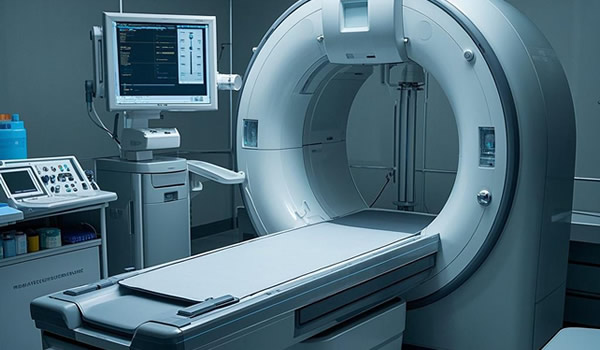Stomach cancer, also known as gastric cancer, is one of the most prevalent cancers in Asia. It is strongly linked to dietary patterns, Helicobacter pylori infection, and genetic factors. Although treatment options are improving, survival rates remain low due to late diagnosis. This guide examines the causes, symptoms, diagnosis, treatment, and prevention of stomach cancer, with a focus on the Asian context.

What is Stomach Cancer?
Stomach cancer develops when malignant cells form in the lining of the stomach. Over time, the tumor may spread to nearby tissues, lymph nodes, and other organs.
The two major types are:
- Adenocarcinoma: The most common, accounting for over 90% of cases.
- Gastrointestinal Stromal Tumors (GIST): Rare tumors from stomach connective tissue.
Stomach Cancer in Asia: Why It’s So Common
- High Burden: East Asia, especially China, Japan, and Korea, accounts for nearly half of global cases.
- Dietary Habits: High salt, pickled vegetables, and smoked foods increase risk.
- Helicobacter pylori Infection: Extremely prevalent in Asia and a major cause of gastric cancer.
- Screening Gaps: Japan and Korea have strong screening programs, but many other countries lack them.
Causes and Risk Factors
1. Helicobacter pylori Infection
- Chronic infection with H. pylori bacteria damages stomach lining and leads to cancer development.
- More than 50% of people in Asia carry H. pylori, making it a leading cause.
2. Diet and Lifestyle
- High salt intake from soy sauce, pickles, and instant noodles.
- Smoked and processed meats.
- Low intake of fresh fruits and vegetables.
- Alcohol consumption and smoking.
3. Genetic and Family History
- Higher risk in those with family history of gastric cancer.
- Certain genetic mutations are more common among East Asians.
4. Other Risks
- Obesity.
- Pernicious anemia and chronic gastritis.
- Previous stomach surgery.
Symptoms of Stomach Cancer
Early symptoms are often mild and mistaken for indigestion. Warning signs include:
- Persistent stomach pain or discomfort.
- Feeling full quickly after eating small meals.
- Heartburn or indigestion that doesn’t improve.
- Nausea or vomiting, sometimes with blood.
- Unexplained weight loss.
- Black stools due to internal bleeding.
⚠️ Because symptoms resemble common digestive issues, many patients are diagnosed at late stages.

Diagnosis of Stomach Cancer
- Endoscopy: A small camera examines the stomach lining and allows for biopsy.
- Biopsy: Confirms presence of cancer cells.
- Imaging: CT scans and MRI to detect spread.
- Blood Tests: To check overall health and anemia.
In Japan and Korea, national screening programs with endoscopy detect many cases early, improving survival rates.
Treatment of Stomach Cancer
1. Surgery
- Gastrectomy: Removal of part or all of the stomach.
- Lymph Node Removal: Prevents spread of cancer cells.
2. Chemotherapy
- Administered before or after surgery to shrink or destroy cancer cells.
3. Radiation Therapy
- Sometimes combined with chemotherapy for advanced cases.
4. Targeted and Immunotherapy
- Drugs that attack cancer-specific mutations (e.g., HER2-positive stomach cancer).
- Immunotherapy (checkpoint inhibitors) is a new option for advanced disease.
Prevention of Stomach Cancer in Asia
Dietary Adjustments
- Reduce high-salt foods (pickles, instant noodles, soy sauce).
- Limit smoked and processed meats.
- Eat more fruits, vegetables, and foods rich in antioxidants.
- Green tea and garlic have shown protective effects in studies.
Infection Control
- H. pylori Eradication: Antibiotic treatment reduces cancer risk.
- Encourage testing in high-prevalence countries.
Lifestyle Habits
- Quit smoking and reduce alcohol.
- Maintain healthy body weight and regular exercise.
Screening Programs
- Endoscopy for people over 40 in high-risk countries.
- Targeted screening for those with family history.
Special Considerations in Asia
- Japan and Korea: Effective nationwide screening reduces mortality rates.
- China: High prevalence of H. pylori and dietary salt, with screening still limited.
- Southeast Asia: Rising cases due to changing diets and low screening access.
- South Asia: Growing burden linked to processed food adoption.
Action Checklist for Stomach Health
- Get tested and treated for H. pylori infection.
- Reduce salt and processed food intake.
- Eat more fresh fruits, vegetables, and whole grains.
- Limit alcohol and stop smoking.
- Maintain healthy weight and active lifestyle.
- Undergo endoscopy screening if at high risk.
- Seek medical help for persistent indigestion or weight loss.

Conclusion
Stomach cancer is a major health challenge in Asia but can be prevented through dietary changes, infection control, and early screening. While treatment outcomes remain poor for late-stage cases, nations with strong screening programs show promising survival rates. Public health campaigns and lifestyle changes will play a critical role in reducing the stomach cancer burden across Asia.